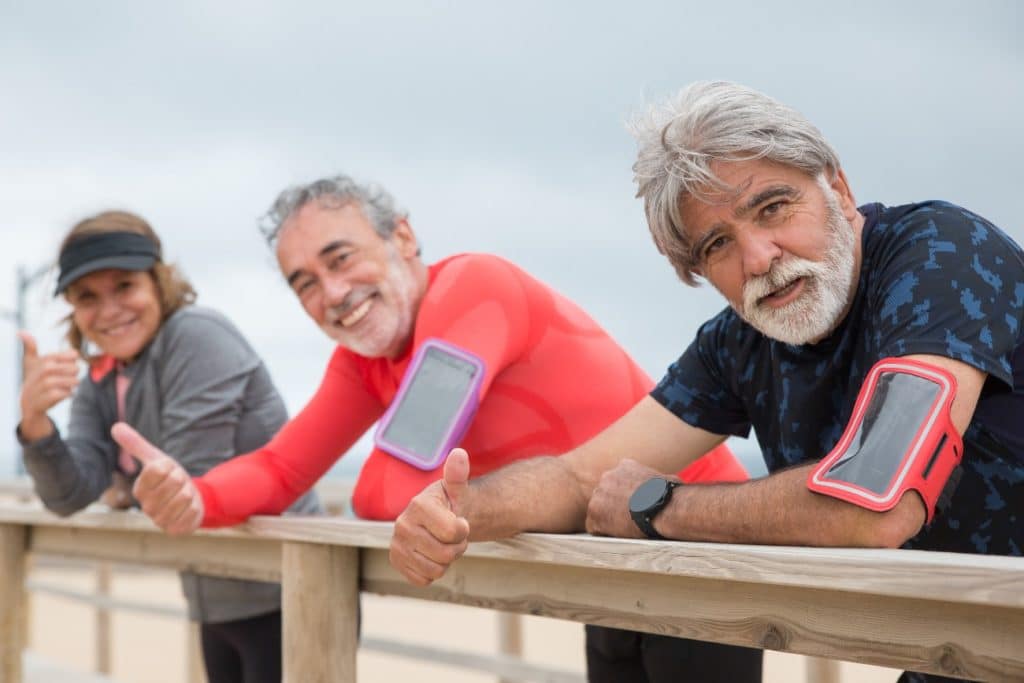We can learn a lot from our seniors. But, of course, some of us are already seniors. We can attest to that firsthand because our grandparents taught kindness, respect, storytelling, empathy, and many other worthwhile lessons at a young age.
Today, many of our elderly are cast aside as insignificant and useless. Many are homeless or thrown in a substandard nursing home before their time. More elderly every year are experiencing financial insecurity. That said, perhaps the saddest fact about our 65 and older demographic is that a majority experience loneliness regularly. We cannot forget our older people just because they are aging.
The Elderly: A Lonely Majority
Consider the following hypothetical scenario played out in every neighborhood in America. Imagine two houses in the same area, each containing a senior living alone. The seniors do not know one another. Many stay to themselves due to crime, social media, and financial hardship. One woman has visitors, friends, and relatives constantly dropping by and taking her shopping, etc. The other woman receives an occasional visit, but her kids don’t bother because they are too busy. This scenario seems fairly unalarming, except that it is becoming more of the norm rather than the exception.
Our elderly are lonely, and it is affecting their physical and mental health and their overall well-being. According to the National Library of Medicine, loneliness and social isolation in older adults are related to a significant morbidity and death rate. The risk factors are comparable to smoking, obesity, and alcohol abuse. As the elderly population is forecast to increase steadily over the next few years, the effects of elderly loneliness are expected to follow suit.
What if My Aging Loved One Self-Isolates?
Older adults living and managing independently may still need assistance with some things, such as mobility. Impaired mobility keeps some seniors home for various reasons, including the extra effort it may take to go somewhere. Not everyone who self-isolates wants it that way. With a little help and encouragement, perhaps we can help those individuals lead a more social life.
Here are a few ways to help your aging loved one get out of the house and socialize.
- Encouragement is always helpful, so encourage them to get out more
- Talk with them about their sleeping habits, so perhaps they need more sleep
- Physical activity can elevate moods and lessen depression
- Healthy eating fuels the body and the mind; take them out for a healthy meal
- Help them find their purpose and encourage their efforts toward it
- Make sure they know you love them; show them and tell them
- If warranted, talk with them about professional help or home care
Seniors and Mental Health Issues
One in four seniors over 65 experience depression and anxiety. Depression is the most common issue facing older adults. Ten percent of Americans over 65 have dementia, and another 22% experience some cognitive impairment. The U.S. Department of Veterans Affairs reports that over 750,000 Veterans over 65 have some form of dementia or cognitive dysfunction.
Although the numbers are alarming, programs and treatments exist to assist the elderly. The Substance Abuse and Mental Health Services Administration (SAMHSA) has many resources to guide seniors, their loved ones, and caregivers to the help they need.
Alcohol and Substance Misuse in the Elderly
Substance use in the 65 and over demographic is not as recognizable as one might think. Other disorders and physical ailments may mask the severity of the substance used in some older adults. The misuse of substances can be dangerous as the effect on seniors is different than on younger adults. Also, seniors often take regular medications, and substance abuse can affect an existing medical condition. Taking multiple medications can also make a person vulnerable to ill-effective drug interactions. Therefore, it is important to seek professional help for alcohol or substance misuse. Treatment is available for older adults.
Dignity, Respect, and Courtesy
The news is full of reports about the mistreatment of the elderly. Sadly, the damage ranges from hurt feelings to physical and emotional abuse. If you see physical abuse, report it to the police. See something, say something. We may remain silent when we witness a family member abusing an older member. Our silence does not help the abused or the abuser; both need help.
All humans deserve the right to dignity. Seeing a store clerk talk down to an older adult as if they were not intelligent is just one example of the daily attacks on seniors’ dignity. Talking to them as if they are children insults their intellect and hurts their feelings. Calling them dear, sweetie, and honey sets them apart from normal society when ma’am or sir would do quite nicely. Remember that our seniors have years of education, knowledge, and life experiences and deserve respect and acknowledgment.
We recognize that seniors’ mental and physical health affects their quality of life and happiness. Balancing life includes physical, mental, and social management and interaction. Loneliness, depression, alcohol, or substance use can interfere with balance. If you or a loved one are experiencing mental health distress or alcohol or substance use issues, SoCal Mental Health can help. Whether you are experiencing relapse or struggling with recovery, we can help you get on track toward a sober, more fulfilling life. Our programs and treatments are designed for your specific needs, and our staff will guide you to recovery with compassion and support. Speak to one of our staff members today for information at (949) 502-2041












